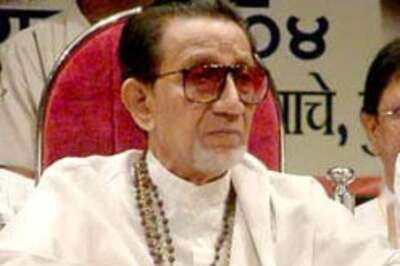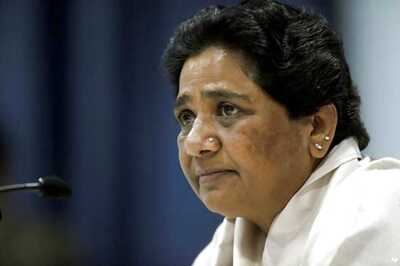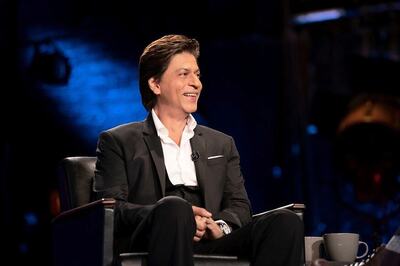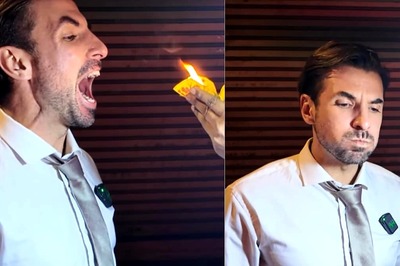
views
Abottabad/Washington: The United States said on Wednesday that killing Al Qaeda leader Osama bin Laden was an act of national self-defense, countering allegations the raid by US commandos on his Pakistani hide-out was illegal.
US Attorney General Eric Holder said bin Laden was a legitimate military target and he had made no attempt to surrender to the American forces that stormed his fortified compound near Islamabad on Monday, and shot him in the head.
"It was justified as an act of national self-defense," Holder told the Senate Judiciary Committee, citing bin Laden's admission of being involved in the September 11, 2001 attacks in New York, Washington and Pennsylvania.
It was lawful to target bin Laden because he was the enemy commander in the field and the operation was conducted in a way that was consistent with US laws and values, he said, adding that it was a "kill or capture mission."
"If he had surrendered, attempted to surrender, I think we should obviously have accepted that, but there was no indication that he wanted to do that and therefore his killing was appropriate," he said.
US acknowledgment on Tuesday that bin Laden was unarmed when shot dead had raised accusations Washington had violated international law. Exact circumstances of his death remained unclear and could yet fuel controversy, especially in the Muslim world.
As the US government debated whether to release photos it had taken of bin Laden's body to the public, one Senator said she had seen one picture showing his face.
"I have seen one of them," Republican senator Kelly Ayotte said, adding she believed it confirmed his identity.
Pakistan faced national embarrassment, a leading Islamabad newspaper said, in explaining how the world's most-wanted man was able to live for years in the military garrison town of Abbottabad, just north of the capital.
Pakistan blamed worldwide intelligence lapses for a failure to detect bin Laden, while Washington worked to establish whether its ally had sheltered the Al Qaeda leader, which Islamabad vehemently denies.
"There is an intelligence failure of the whole world, not just Pakistan alone," Prime Minister Yusuf Raza Gilani told reporters in Paris. "(If there are) ... lapses from the Pakistan side, that means there are lapses from the whole world.
The revelation that bin Laden was unarmed contradicted an earlier US account that he had participated in a firefight with the helicopter-borne American commandos. Al Arabiya television went further, suggesting the architect of the 9/11 attacks was first taken prisoner and then shot.
"A security source in the Pakistani security quoted the daughter of Osama bin Laden that the leader of Al Qaeda was not killed inside his house, but had been arrested and was killed later," the Arabic television station said.
White House spokesman Jay Carney on Tuesday cited the "fog of war" - a phrase suggested by a reporter - as a reason for the initial misinformation.
Bin Laden's killing and the swift burial of his body at sea have produced some criticism in the Muslim world and accusations Washington acted outside international law.
"The Americans behaved in the same way as bin Laden: with treachery and baseness," Husayn al-Sawaf, 25, a playwright, said in Cairo. "They should've tried him in a court. As for his burial, that's not Islamic. He should've been buried in soil."
But there has been no sign of mass protests or violent reaction on the streets in south Asia or the Middle East, where Islamist militancy appears to have been eclipsed by pro-democracy movements sweeping the region.
Washington was weighing sensitivities in the Muslim world before deciding whether to release to the media photographs of bin Laden's body which could provide proof for skeptics of his death.
"It's fair to say that it's a gruesome photograph," Carney said. "I'll be candid. There are sensitivities here in terms of the appropriateness of releasing photographs."
There has been little questioning of the operation in the United States, where bin Laden's killing was greeted with street celebrations. A New York Times/CBS News poll showed President Barack Obama's approval jumped 11 points to 57 percent after the operation, though Americans feared revenge attacks by militants.
Pakistan has welcomed bin Laden's death, but its Foreign Ministry expressed deep concerns about the raid, which it called an "unauthorized unilateral action."
The CIA said it kept Pakistan out of the loop because it feared bin Laden would be tipped off, highlighting the depth of mistrust between the two supposed allies.
US helicopters carrying the commandos used radar "blind spots" in the hilly terrain along the Afghan border to enter Pakistani airspace undetected in the early hours of Monday.
The Pakistani newspaper Dawn compared the latest humiliation with the admission in 2004 that one of the country's top scientists had sold its nuclear secrets. "Not since Abdul Qadeer Khan confessed to transferring nuclear technology to Iran and Libya has Pakistan suffered such an embarrassment," it said.
The streets around bin Laden's compound in Abbottabad remained sealed off on Wednesday, with police and soldiers allowing only residents to pass through.
"It's a crime but what choice are you left with if I'm not handing over your enemy who is hiding in my house?" said Hussain Khan, a retired government official living nearby, when asked about the apparent violation of Pakistan's sovereignty. "Obviously you will go and get him yourself."
Carney insisted bin Laden resisted when US forces stormed his compound in the 40-minute operation. He would not say how.
"There was concern that bin Laden would oppose the capture operation and, indeed, he resisted," Carney said. "A woman... bin Laden's wife, rushed the US assaulter and was shot in the leg but not killed. Bin Laden was then shot and killed. He was not armed."
The strike team opened fire in response to "threatening moves" as they reached the third-floor room where they found bin Laden, CIA Director Leon Panetta told PBS television.
"The authority here was to kill bin Laden," he said. "And obviously, under the rules of engagement, if he had in fact thrown up his hands, surrendered and didn't appear to be representing any kind of threat, then they were to capture him. But they had full authority to kill him."
Geoffrey Robertson, a prominent London-based human rights lawyer, said the killing "may well have been a cold-blooded assassination" that risked making bin Laden a martyr.
Pakistan has come under intense international scrutiny since bin Laden's death, with questions on whether its security agencies were too incompetent to catch him or knew all along where he was hiding, and even whether they were complicit.
In Afghanistan, the Taliban, who harbored bin Laden until they were overthrown in late 2001, challenged the truth of his death, saying Washington had not provided "acceptable evidence to back up their claim" that he had been killed.




















Comments
0 comment